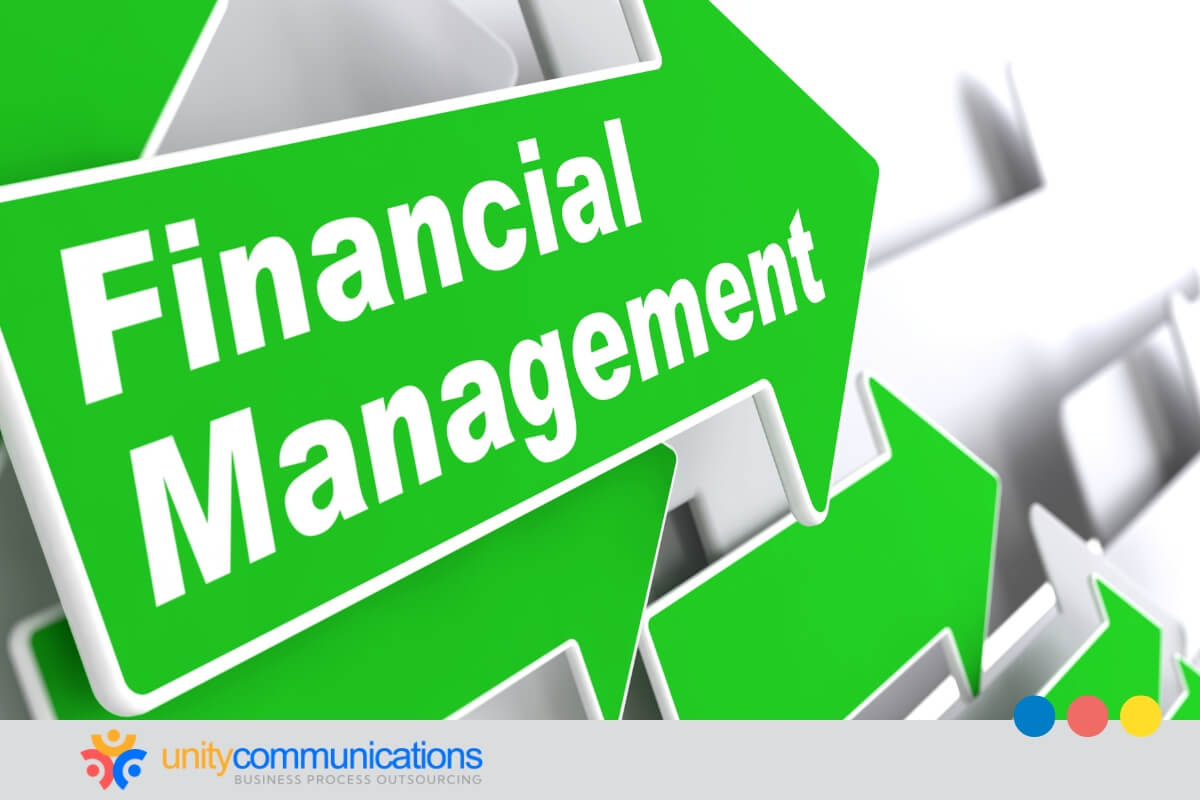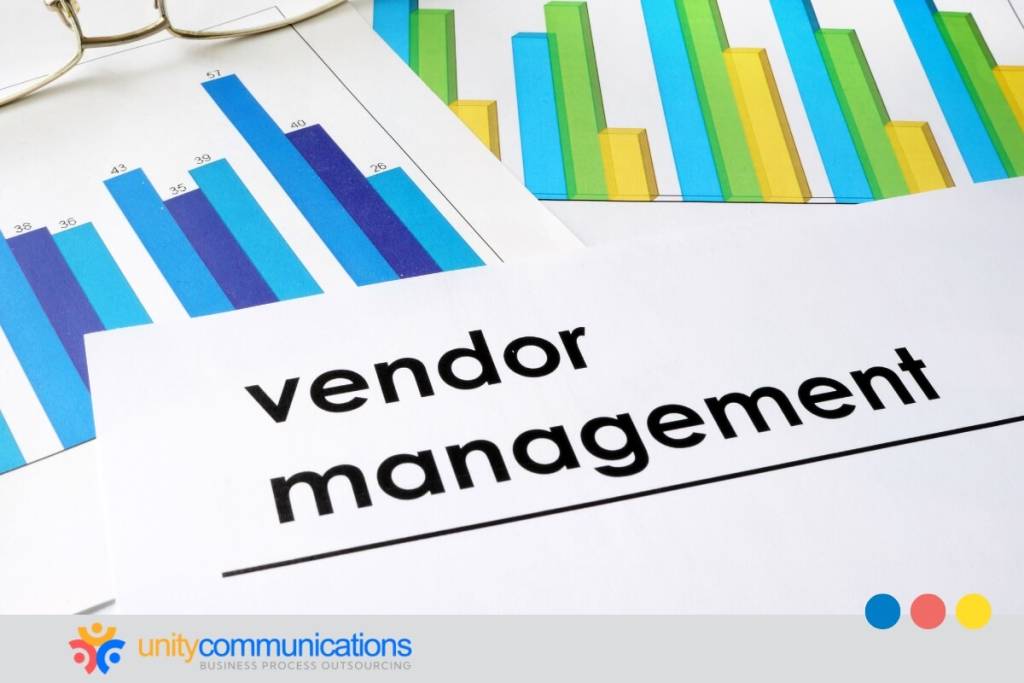IN THIS ARTICLE
Table of Contents
Firms increasingly turn to business process outsourcing (BPO) to improve operational efficiency, cut costs, and focus on core capabilities to gain a competitive edge.
Properly using BPO vendor management systems (VMS) is critical to realizing the full benefits of outsourcing. VMS solutions are intended to manage the intricacies of vendor relationships while ensuring that outsourced processes function successfully.
This article delves into the critical components of a third-party VMS, its roles in optimizing outsourcing operations, future trends, and tips for selecting the best system for your requirements.
Continue reading to acquire insights.
Demystifying BPO vendor management systems

What is BPO VMS? It is a customized software solution that assists firms in managing their relationships with vendors and suppliers. This vendor management platform allows businesses to oversee operations run by an external workforce, such as customer service, information technology (IT) support, human resources, finance, and accounting.
BPO vendor management software offers a consolidated structure for supervising all aspects of third-party relationships, such as:
- Vendor selection and onboarding. VMS facilitates third-party BPO vendor selection by identifying and evaluating potentials based on predefined criteria. It also automates vendor onboarding to help meet all necessary documentation, certification, and compliance requirements.
- Contract management. Vendor management software aids in developing, negotiating, and storing contracts. It ensures that all terms and conditions are established and followed, reducing the likelihood of problems. Contract renewal and expiration alerts are also included as standard features.
- Performance monitoring. BPO VMS enables the measurement and monitoring of vendor performance against established service-level agreement (SLA) terms and key performance indicators (KPIs). Real-time dashboards and reporting features allow firms to preserve transparency while holding vendors accountable for their performance.
- Compliance and risk management. Vendor compliance with legal requirements and internal regulations is necessary. VMS features compliance tracking functionality that checks adherence to multiple laws, regulations, and industry standards, reducing the risks linked to outsourcing.
- Financial management. BPO vendor management systems simplify business processes such as billing, settlements, and cost reporting. They also offer insights into vendor performance to assist with budget management and cost reduction.
- Communication and collaboration. Effective communication is critical for outsourcing. VMS provides tools for improving cooperation, streamlining issue resolution, and aligning all parties.
- Data security. Securing sensitive information is critical. VMS combines advanced security mechanisms to protect data, enforce regulatory compliance, and preserve the integrity of organizational information.
How BPO vendor management systems streamline outsourcing operations
BPO vendor management solutions significantly improve the effectiveness and productivity of outsourcing operations. Below, we detail how they accomplish this.
Centralized vendor information
A VMS centralizes vendor information, offering a single source for all vendor-related data. Consolidation allows quicker, more efficient access to crucial information, improves communication, and ensures all stakeholders are on the same page.
Examine how centralized vendor information drives outsourced processes:
- Enhanced accessibility and accuracy. BPO vendor management systems eliminate manual record-keeping, storing all relevant data in one secure digital space. They ensure up-to-date, accessible information for stakeholders, reducing errors and inconsistencies from fragmented data sources.
- Streamlined communication and collaboration. A centralized system improves interaction between the organization and BPO vendors. Easily accessible information allows parties to address inquiries, resolve issues, and make decisions, fostering collaboration and improving efficiency and productivity.
Efficient contract management
According to World Commerce & Contracting, 81% of polled commercial entities plan to automate contract management, and this is also a core function of BPO vendor management systems. A VMS automates vendor contract formation, negotiation, and oversight and ensures that all contract terms are clearly defined and followed.
Consider how efficient contract management improves outsourcing operations:
- Frictionless process. BPO VMS automates and simplifies the entire contract lifecycle, including origination, execution, and management. Predefined templates and automated workflows speed up the drafting and approval process, lowering the administrative workload and eliminating delays.
- Improved visibility. The vendor management system provides real-time access to contract data, which increases insight into ongoing outsourcing contracts. Stakeholders can monitor contract status, critical milestones, and possible difficulties, allowing for proactive management and prompt interventions.
Enhanced risk management
Outsourcing demands risk management. A VMS helps identify, assess, and mitigate risks associated with vendor relationships, assisting organizations proactively to address potential issues before they escalate.
See how the BPO vendor management system maximizes outsourcing with proactive risk control strategies:
- Complete risk assessment and identification. Cyber risk and operational disruption are the top threats to organizations. By completing comprehensive risk assessments through BPO VMS, firms can establish successful mitigation measures against these threats, as well as financial instability and vendor non-compliance.
- Real-time monitoring and alerts. BPO VMS allows live tracking of vendor performance and compliance. Automated alerts notify stakeholders of deviations from specified thresholds or KPIs, allowing early actions to address developing risks for operational continuity.
Simplified compliance management
Compliance with regulatory standards and internal policies is crucial in BPO. VMS platforms automate compliance by tracking vendor adherence to standards, reducing non-compliance risk and legal repercussions.
Find out how BPO vendor management systems simplify compliance management:
- Detailed documentation and audit trail. VMS records adherence activities, maintaining a comprehensive audit trail of all interactions and changes for transparency. Auditors and authorized personnel can access historical data, verify compliance status, and streamline the audit process, enhancing accountability in regulatory reporting.
- Customizable compliance workflows. The vendor management platform provides configurable compliance workflows tailored to organizational and industry needs. It allows parties to define checks, approvals, and escalation paths per unique compliance requirements, ensuring adaptability to regulatory changes.
Improved supplier relationship management
Good vendor management is critical to maintaining solid supplier relationships, which are the backbone of an effective supply chain. A VMS provides tools for regular performance reviews, feedback, and communication, building trust and collaboration between the organization and its BPO partners.
Look at how BPO vendor management systems improve supplier relationship supervision:
- Consolidated communication. BPO VMS centralizes communication between businesses and vendors, serving as a single point of contact for inquiries and issue resolution. It eliminates multiple channels, lowers confusion, and ensures all stakeholders are in sync.
- Robust feedback mechanisms. VMS platforms include built-in feedback methods for collecting vendor comments on service quality, timeliness, and communication, fostering openness and helping companies quickly address complaints and enhance vendor relationships.
Automated routine tasks
A VMS saves time and money by automating repetitive operations, including vendor onboarding, billing, and performance monitoring. Automation decreases administrative strain on workers and minimizes errors in vendor management operations, ensuring consistency.
Discover how the BPO vendor management systems automate routine tasks to improve outsourcing operations:
- Routine communication. VMS automates regular communications such as status updates, reminders, and notifications, ensuring that organizations and vendors are constantly aware of essential milestones, deadlines, and changes. Automation minimizes manual follow-ups while increasing communication efficiency.
- Facilitated invoicing and payments. VMS generates bills automatically depending on predefined terms and conditions, monitors payment statuses, and processes payments quickly. It decreases the administrative burden on financial teams and ensures that vendors are paid on time, improving relationships.
Cloud-based solutions
VMS solutions are frequently cloud-based, which enhances flexibility and scalability. Cloud-based solutions enable enterprises to access their systems from anywhere, promoting remote work and worldwide collaboration. They also eliminate the requirement for significant initial investments in IT infrastructure.
Uncover how BPO vendor management systems offer flexibility and scalability via cloud-based solutions:
- Flexible access. Cloud-based VMS platforms provide remote access to vendor management technologies, allowing global teams to work together and manage vendor relationships from anywhere. This flexibility is beneficial for geographically scattered nearshore and offshore BPO providers.
- Scalable infrastructure. Cloud-based VMS solutions can scale to suit the needs of a growing business. As firms add new vendors or expand their outsourcing, the cloud handles rising data and user demands without requiring costly hardware or more IT workers.
Future trends in BPO vendor management systems

Technical advancements, shifting business requirements, and the complexity of global supply chains are all influencing the next generation of BPO VMS. The following are a few noteworthy trends that will influence the development and usefulness of VMS in the coming years:
- AI and machine learning (ML). AI and ML will improve VMS capabilities by analyzing data and providing meaningful insights about vendor performance, risk assessment, and predictive analytics. AI-powered algorithms can automate decision-making, anticipate challenges, and recommend the best vendor alternatives.
- Blockchain technology. Blockchain protects vendor transactions and contracts while assuring data quality and transparency. VMS uses blockchain for contract lifecycle monitoring and secure payment processing, lowering fraud risk and increasing confidence.
- Advanced risk management. Future VMS will integrate enhanced risk management features with real-time data analytics to identify, assess, and mitigate outsourcing risks.
- Integration with the Internet of Things (IoT). With IoT integration, VMS can collect real-time data from devices and sensors, monitor vendor performance, trace shipments, and verify quality compliance. This integration provides better operational insights for vendor management.
- User experience (UX) and interface improvements. Future VMS focuses on improving UX and interface design. Systems will include user-friendly interfaces, customizable dashboards, and real-time alerts to ensure a smooth connection with enterprise applications.
- Sustainability and ethical sourcing. Vendor management will focus on sustainability and ethical sourcing. Future VMS will track suppliers’ environmental and social impacts, ensuring compliance with sustainable practices and moral standards vital to corporate responsibility.
- Data privacy and security. As global data privacy standards increase, future VMS will prioritize compliance. Data privacy and security measures will be used to secure sensitive information and ensure vendor data is handled accordingly.
Choosing the right BPO vendor management systems for outsourcing needs
Finding the best BPO VMS is critical to reaping the benefits of outsourcing. Consider the following key points:
- Evaluate your needs. Before selecting a VMS, consider your organization’s requirements. To make an informed decision, consider the vendor base’s size, outsourcing’s complexity, and functional requirements.
- Assess qualities and performance. Ensure that the VMS allows easy management of vendor information, contracts, performance, and compliance. Learn more about its AI analytics, blockchain, and IoT capabilities.
- Study integration capacities. Choose a VMS that seamlessly integrates with your enterprise systems. Strong integration maintains data consistency and improves process efficiency across your organization.
- Emphasize security. Ensure your VMS has advanced security measures and conforms to data protection standards.
- Employ user-friendly solutions. A user-friendly interface and intuitive design are critical for increasing user adoption. Consider VMS solutions that provide natural language processing (NLP), mobile applications, and configurable dashboards.
- Consider scalability. Select a VMS that can grow with your enterprise. Modular solutions with extensive modification options enable you to adjust the system to your changing needs.
- Calculate the cost and return on investment (ROI). Conduct a cost-benefit analysis of the VMS. Calculate the initial implementation and continuous maintenance costs. Investigate pricing strategies that fit your budget and usage patterns.
- Get vendor support. Evaluate supplier services such as training, technical support, and customer service to ensure successful deployment and use.
- Read reviews and receive recommendations. Conduct research and obtain advice from organizations that use VMS. Their experiences provide vital insights to help in decision-making.
- Pilot the system. Before committing, evaluate the VMS’s functionality and appropriateness. This phase identifies potential difficulties and verifies that the system meets your requirements.
The bottom line

BPO vendor management systems are pivotal in enhancing outsourcing operations. These software solutions enable firms to manage relationships with BPO partners effectively.
From vendor selection to cloud-based solutions, BPO VMS offers a consolidated structure for overseeing all third-party relationships. As VMS evolves, technological advancements will cater to changing business demands. Follow the steps above to select the right vendor management platform.
Let’s connect to learn more about BPO vendor management systems and how Unity Communications can help streamline your outsourcing operations!





